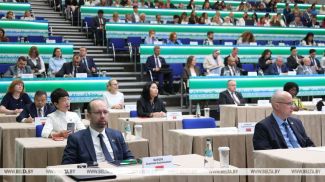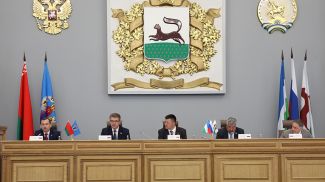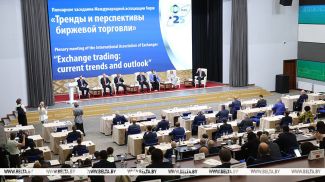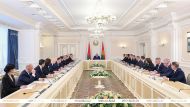MINSK, 30 September (BelTA) – Belarus will borrow money from the World Bank for the sake of heat modernization of houses. The matter was discussed as Deputy Prime Minister of Belarus Vladimir Kukharev met with World Bank Country Manager for Belarus Alex Kremer on 30 September, BelTA has learned.
Vladimir Kukharev reminded that a presidential decree had been signed recently to regulate efforts to improve the energy effectiveness of apartment blocks. A number of bylaws are being worked out to determine how specifically this work will proceed. “We have already instructed the regions to start working with the population in this regard,” Vladimir Kukharev noted.
“The government will keep an eye on the implementation of these measures so that we could start working in this direction as soon as possible,” the deputy prime minister stressed.
In turn, Alex Kremer suggested considering the possibility of working out a project to improve the energy effectiveness of public buildings. “We have not determined the sum that will be appropriated. We would like to be flexible about it and specify the sum in the course of preparing the project depending on the needs that will be uncovered,” he specified.
Alex Kremer added: “We intend to work out the project and submit the relevant proposal for consideration of the World Bank Board of Directors in late 2020. Although the date seems remote, it is necessary to get down to work as soon as possible in order to meet the deadline.”
The World Bank representative also thanked the government for approving the investment project on expanding sustainable energy use. It paves way for presenting the relevant documents for consideration of the World Bank Board of Directors.
The meeting also touched upon the possibility of the World Bank taking part in the electrification of railway transport in Belarus.
BelTA reported earlier that the presidential decree on improving the energy effectiveness of apartment blocks stipulates how owners of these houses can contribute to financing measures designed to reduce heat energy consumption in apartment blocks, reduce the cost of heating, and improve consumer qualities of such homes.













